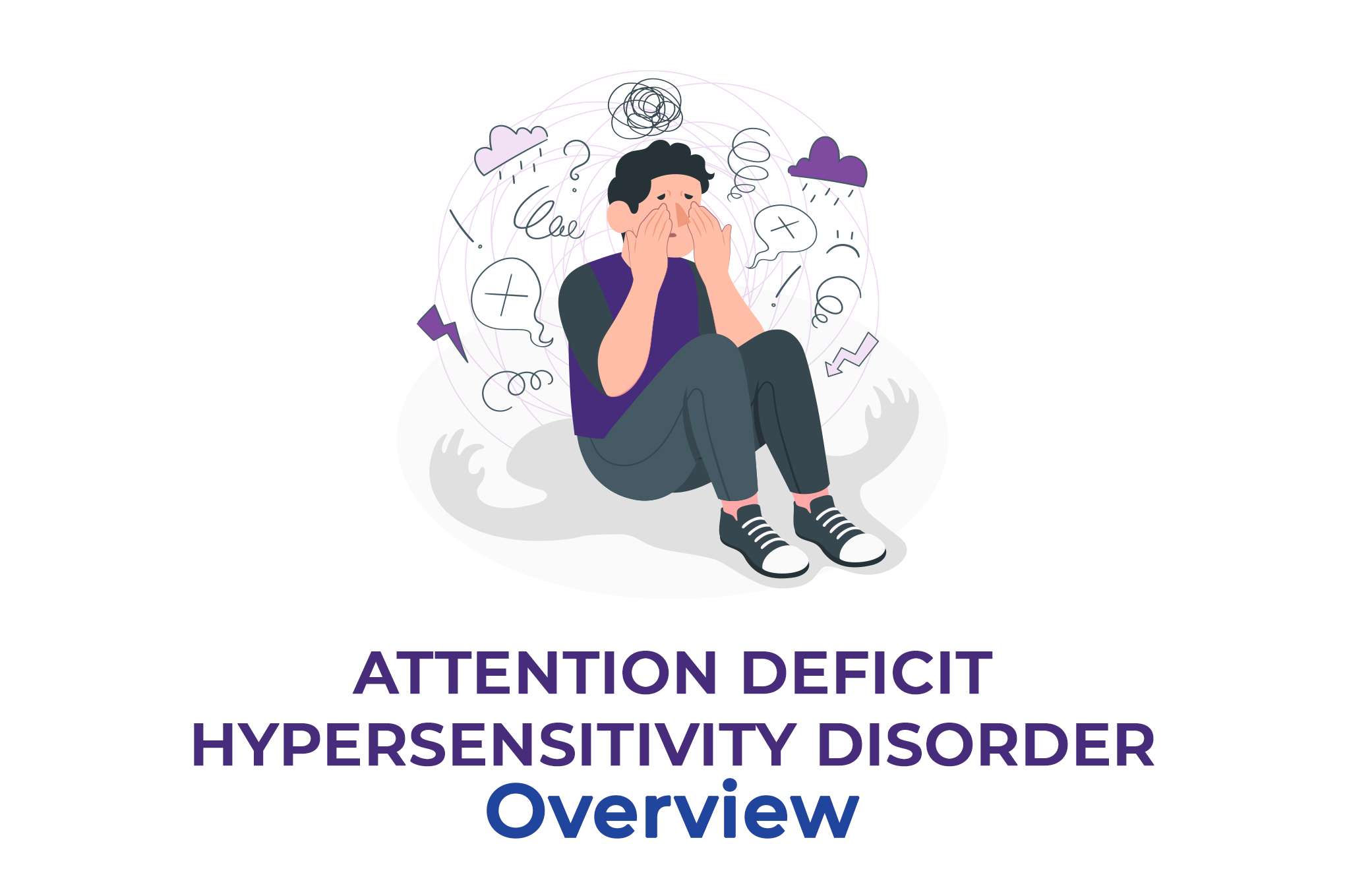What is ADHD?
ADHD is a neurodevelopmental disorder of childhood that affects certain areas of the brain hindering it from performing instinctive capabilities such as focusing, formulating events, deciding, and executing everyday tasks adequately. The ADHD full form is Attention deficit hyperactivity disorder.
There is a common misconception that ADHD commonly occurs only in adults. ADHD could occur at any time or any age in one’s life. ADHD is one of the most commonly diagnosed mental disorders in children. ADHD causes people to experience a change in their energy levels continuously, and a lack of focus or attention results in major effects on the way they act, study, learn, work, behave and carry about everyday tasks.
Signs and Symptoms of ADHD
The symptoms of ADHD in children are generally categorized into two types of behavioral problems. These include
- Inattentiveness (short attention span)
- Difficulty staying on task
- Difficulty sustaining focus
- Difficulty staying organized
- Easily distracted
- Tends to daydream
- Hyperactive and Impulsiveness
- Unfocused motor activity
- Excessive fidgets, taps, or
- Excessively talking
- Impatient
- Often interrupts others
Symptoms of ADHD in adults
- Anxiety
- Low self-esteem
- Impulsiveness
- Extreme restlessness
- Procrastination
- Easily frustrated
- Mood swings
- Trouble concentrating when reading
Diagnosis of ADHD
Signs and symptoms of ADHD commonly occur in children. It is more common in boys than in girls. Most adults who get diagnosed with ADHD went undiagnosed in their childhood. ADHD is less likely to appear in adulthood for the first time. If an adolescent or adult is diagnosed with ADHD, it’s most likely that the symptoms first appeared before 12 years of age but went unnoticed or were misdiagnosed.
The symptoms of ADHD might appear in childhood at the toddler stage. Most times, parents dismiss the signs and symptoms of ADHD, mistaking them for disciplinary issues or unattended emotional problems. Delayed diagnosis usually is the reason behind many children not performing well academically, cultivating friendships, etc.
In adults, these problems occur in the form of issues at the workplace, socializing, and failing to cultivate healthy workplace contacts or personal relationships. However, the symptoms of hyperactivity begin to lessen with time as an individual grows. These symptoms transition into fidgeting, anxiety, and restlessness. But symptoms such as lack of focus and concentration may remain as they were from childhood to adolescence or adulthood.
Risks of ADHD
People with ADHD are often at risk of suffering from some other condition as well, such as
- Anxiety disorder
- Depression or depressive disorder
- Substance abuse
- Conduct disorder
- Disabilities in learning
Treatment of ADHD
ADHD has no definitive cure. However, it can be treated symptomatically. Below are some treatments that are suggested in combination by mental health experts in general.
- Medication
To reduce the symptoms of ADHD, many therapists and mental health doctors suggest medication. These medications help patients with ADHD in overcoming their hyperactivity and impulsivity, enabling them to overcome their lack of focus and learning.
Medications suggested for ADHD treatment are a combination of various stimulants and non-stimulants.
- Psychotherapies
Many therapists and psychologists suggest various specific psychosocial interventions to help individuals with ADHD. These therapies assist the patients in managing the symptoms of ADHD, enabling them to function more appropriately and adequately. Some of them are
- Behavioral therapy
- Cognitive behavioral therapy
- Family and marital therapy
- Parenting skills training (behavioral parent management training)
- Stress management techniques
- Support groups
As a responsible individual and adult, you can help the people around you with ADHD, a loved one, or a friend in the following ways of organizing their everyday routine.
Helping both Children and Adults combat symptoms of ADHD
- For Children:
For children with ADHD, the adults in their life must take the necessary steps and actions to help them cope with this disorder as much as possible. Parents and teachers must play an active role here and not get lax. They can help the kids showing signs and symptoms of ADHD in staying organized and managing their control via the following ways.
- Help the children in building a strict routine and a strict schedule. Develop the habit in the children of following a particular schedule every day. Beginning from the time they wake up to the end of the day when they go to bed. Parents must keep this routine pinned to some cupboard, fridge, or door where children can easily see and read it for most parts of their day. Teachers should pin the schedule to the child’s desk or simply be an efficient reminder for them to follow their routines. This routine should incorporate their everyday major and minor tasks such as brushing their teeth, meals, homework, etc, along with the activities which they generally enjoy, such as playing games, sports, watching TV, or any of their hobbies like drawing, painting, etc.
- Help and encourage the children in making a list of the things they use in their everyday tasks. Or all the stuff they generally own, divide them into categories such as toys, clothes, games, art, books for recreational joy, or books and copies for school, etc, then organize those items in their respective categories. Keep these organized items in their respective designated space in their rooms or house. Every time they choose an item from those places, they must place it back after using it too.
- Encourage children to do their homework in an organized way. Teach them to list and arrange their tasks by writing them down themselves while making use of organizers.
- Be clear and consistent with them.
- Reward them for achieving small targets and milestones.
For Adults:
Adults can seek help from mental health professionals to overcome their symptoms of ADHD by practicing the following measures.
- Making routines of everyday daily tasks and making sure they stick to that schedule religiously. Create a list and cross off the completed tasks. The adults must categorize activities and divide them adequately day-wise, week-wise, and month-wise. By the end of it, note down the progress.
- Use calendars, reminder notes, and reminder apps on your phone.
- Categorizing and assigning their belongings and making sure they always arrange those things back.
- Breaking down everyday tasks or bigger tasks at hand into small manageable steps. Once the task is accomplished, reward yourself with something small yet worthwhile. Acknowledge their achievement and tell themselves how they overcame their hindrances to achieve what they did.







